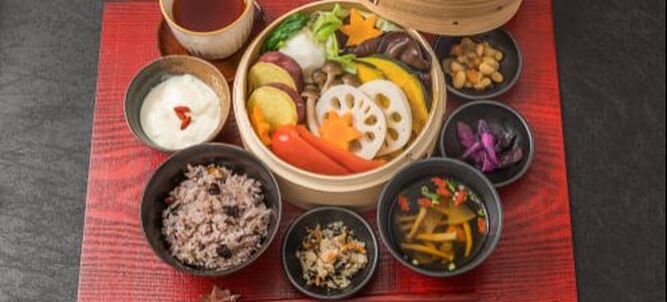TCM Diet TherapyIn TCM theory, Yin represents the nutritional, cooling, calming, and moistening aspects of the body. In general, TCM diet therapy is aimed at consuming highly nutritious and easily digested foods at regular mealtimes. When diagnosed with a Yin deficiency one should follow a quieter lifestyle with regular "early to bed" sleep patterns and a scheduled, nourishing diet which avoids Yang activating foods. Cleansing, fasting and meal skipping should be avoided.
Recommendations: About 40% of your meals should consist of easily digested complex carbohydrates like grains and starchy root vegetables. Another 40% of the diet should be cooked vegetables with some fruit. Proteins can make up the remaining 10 - 20% of the diet. This is meant to be a “tonifying” and nourishing diet and should be hearty though not overly rich and greasy. We generally advise people to eat as they would if they had been doing hard, physical labour outside in cold weather all day. Foods that help Yin deficiency Grains: rice, oats, millet, barley, wheat germ, tef, quinoa, amaranth, etc Dairy: milk, goat milk, eggs, yogurt, etc Beans: Beans in general but specifically tofu, beans, aduki beans, black beans, mung beans, kidney beans, fava beans Nuts and Seeds in general but especially black sesame seeds goji berries Meat products: pork, beef, chicken, duck, etc Seafood: fish, clam, abalone, oyster, sardines seaweeds: spirulina, chlorella Vegetables: virtually all vegetables that are not spicy such as onions, especially the starchy and/or green ones Virtually all fruit Oils: olive oil, coconut oil, flax seed oil, almond oil Foods to avoid or eliminate Hot and spicy herbs including chilli pepper, cinnamon, onions, shallots, leeks, wasabi, garlic Drinks: coffee, tea, alcohol and other stimulating drinks Pickles, vinegar (excluding apple cider vinegar) Meats: Lamb, shrimp, prawns, veal, game birds (these meats are considered hot in nature) Other: cigarettes, alcohol, recreational stimulants |
Conditions Treated - Click for Information
|
|


 RSS Feed
RSS Feed